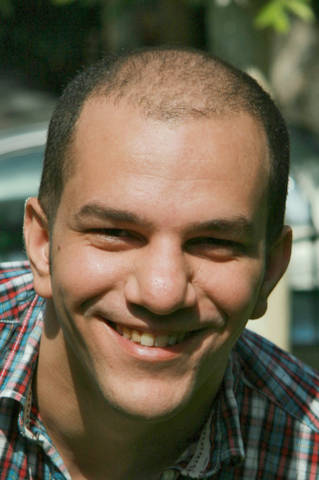Egypt’s Morsi and the risk of friendly fire
By Osama Diab
By courting his rivals, Egyptian President Mohamed Morsi could turn former allies into foes and bring to the fore the divisions among Islamists.
Monday 2 July 2012
Egypt's new president, Mohamed Morsi, realises that he stands on shaky ground. He probably senses that many political groups, segments of the police state, the former regime, and regular members of the public would love to see him fail.
This is why he was quick to try and win the public's hearts and minds by working to counter fears many people would naturally have about an Islamist president. He met with artists and novelists, while promising to appoint a Copt and a woman as vice-presidents. He also reassured the security services that not much will change by stating clearly in his meeting with police leaders that he rejects the term ‘cleanse' when it comes to police reform.
One thing is for sure, both his opponents and proponents will be closely watching his performance. There is great hope to see him succeed and burning desire to witness him fail. Someone even established an online barometer, the ‘Morsi Meter', to monitor and measure his actual performance against his pledges.
Of course, it is to be expected that the predators out for Morsi's hide include secularists, liberals, summer holidaymakers at the North coast's gated resorts, club-goers, whiskey drinkers, vodka sippers, opposition parties, perhaps members of the old regime, not to mention the Armed Forces. However, against all expectations, the main and most serious opposition might come from his own backyard: some factions of what is referred to as the Islamist movement.
Early signs of the kinds of clashes that might occur in the future can be seen in the Salafist al-Nour party's rejection of Morsi's decision to appoint Coptic and female vice-presidents, because such moves would contradict their interpretation of Sharia. They have reportedly threatened to withdraw from the presidential team if Morsi insists on taking these steps.
The full participation of Islamists in political and public life is a reality many still find hard to digest, which is why many people can't get their head around the deep ideological divides between the different shades of political Islam. As a result, they think of them as a homogeneous force.
Centrist Islamist parties, such as al-Wasat and the Brotherhood's Freedom and Justice Party, could be better compared to the Christian Democratic parties in Europe, which are mainly characterised by their liberal, or neo-liberal, economic policies, but they remain moderately conservative on social matters, which are a lesser priority. The Brotherhood's focus on the economy and their long history of working with all other political groups, including leftists, Arab nationalists, and liberals allowed them to develop a more pragmatic and moderate approach to certain ideological issues.
This was clear in Morsi's visits, meetings and speeches after he was announced the winner. His reception of prominent author Alaa Al-Aswany, who is known for his progressive views, sexually explicit novels and his criticism of political Islam, shows that the Islamist organisation is willing to make concessions and extend a hand of cooperation even to those who sit at the opposite end of the political spectrum.
On the other hand, Salafi Islamist groups are more concerned with moral and social matters, and maintaining certain religious demographics. They wouldn't shy away from resorting to violence and radical politics if needed. Unlike reformist Islamists, they don't always work their way up the existing political system and institutions.
Salafists lack the Brotherhood's pragmatism. This could be due to their strict ideological stances, their relatively short political history, or a combination of the two. It seems inevitable that Salafist rigidity will affect Morsi, accusing him of warming up too much to liberals and not staying true to his promise of establishing their own definition of an ‘Islamic society'. It's not only priorities that differ, but Islamists also disagree on many fundamental juristic issues related to women's rights, freedom of religion, corporal punishment, and so on.
This deep intrinsic ideological difference within what is collectively referred to as political Islam will rise to the surface now that the Muslim Brotherhood faces, for the first time, the pressures of making real political decisions after long decades of abstract ideas and mere talk. The Brotherhood is too pragmatic and economy-oriented to want to scare away tourists and investors and create enemies at home and abroad in the early days of their rule. But in the process of trying to make his traditional rivals happy, it is very possible that Morsi might accidentally turn old mates into new foes.
This article first appeared in The Daily News on 1 July 2012. Republished here with the author's permission.


